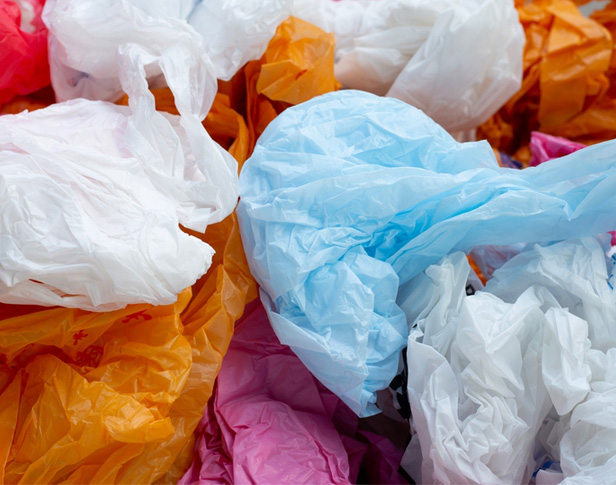Sustainability September 10, 2024
Report: Single-Use Bag Bans Cutting Plastic Waste
The Ocean Conservancy said it found a 29% reduction in plastic grocery bags on beaches following an uptick in statewide bans.
Single-use plastic bag bans are working.
That’s according to a new report by scientists at the Ocean Conservancy, a nonprofit environmental advocacy group. The analysis discovered a 29% reduction in plastic grocery bags found on beaches and waterways by the conservancy’s International Coastal Cleanup (ICC) volunteers, following an increase in statewide plastic bag bans.

During the COVID-19 pandemic – a time when plastic bag usage surged and many bag bans were paused – the number of bags collected per ICC volunteer nearly doubled.
Since 2020, the percentage of the U.S. population covered by statewide plastic bag bans has doubled – from 12% to 25%. The Ocean Conservancy reports a 29% reduction in the number of plastic grocery bags collected per volunteer in 2022-2023, relative to pre-pandemic levels (2013-2019).
“Plastic bags are one of the deadliest forms of plastic pollution to marine life, and sadly, they are also one of the most commonly found polluting our beaches,” said Dr. Anja Brandon, director of plastics policy at the Ocean Conservancy.
Research from the nonprofit has found plastic bags to be among the top five deadliest forms of ocean plastic pollution, with turtles and other sea life often mistaking bags for jellyfish and eating them.
Americans use 100 billion plastic grocery bags a year, and on average, they’re used for just 12 minutes before being discarded, according to the nonprofit. Since the first ICC in 1986, more than 18 million volunteers have joined local cleanup efforts to remove more than 385 million pounds of trash from beaches and waterways around the world.
100 billion
The number of plastic grocery bags Americans use each year.(Ocean Conservancy)
“The best way to prevent plastic grocery bags from becoming plastic pollution is by making and using fewer of them in the first place,” Brandon stated. “This analysis confirms that bans are an effective way to deal with this problematic plastic. We hope that this analysis will inspire other states to pass bans of their own.”
There are currently 11 states with plastic grocery bag bans: California, Colorado, Rhode Island, Connecticut, Delaware, Maine, New Jersey, New York, Oregon, Vermont and Washington all have restrictions. Though Hawaii doesn’t have a state-level ban, counties have enacted their own restrictions independently, effectively outlawing single-use bags statewide.
Some retailers have also willingly begun cracking down on single-use plastic bags. Grocery chain Kroger is working to rid its stores of single-use plastic bags by 2025, and Walmart has stopped offering them at checkout in six states.
In addition to the environmental benefits of reducing single-use plastic, bans have been touted as an opportunity for promotional products distributors to sell branded, reusable totes.
“High-quality machine-washable reusable bags can be a joy to own and use, and have a significantly lower environmental impact than single-use or quasi-single-use bags,” Andy Keller, founder and CEO of California-based ChicoBag (asi/44811) and a member of the Promo for the Planet editorial advisory board, has said.

Promo for the Planet is your destination for the latest news, biggest trends and best ideas to help build a more sustainable and socially-responsible industry.
